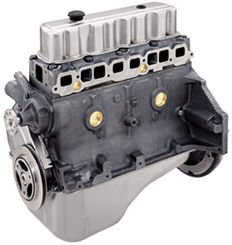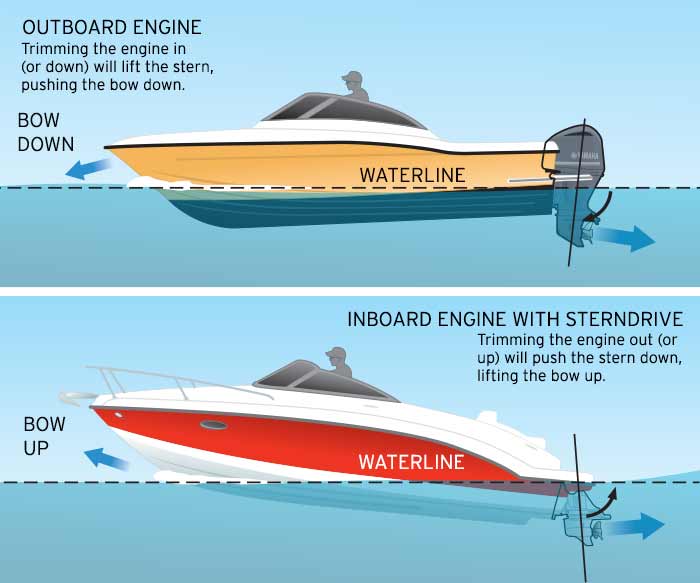Are you the proud owner of a boat and considering making modifications to its engine? Before you set sail on any engine modifications, it is crucial to have a comprehensive understanding of the legal implications. The article delves into the complex realm of boat engine modification, shedding light on the legal requirements and restrictions that govern these alterations. With a friendly tone, it serves as a valuable guide to ensure you navigate the legal waters smoothly while enhancing your boat’s performance.
The Importance of Understanding the Legalities
When it comes to boat engine modification, it is crucial to have a clear understanding of the legalities involved. Modifying your boat’s engine can have significant implications, not only in terms of safety and environmental impact but also in regards to federal and state laws and regulations. By understanding the legal framework surrounding boat engine modification, you can ensure that you are compliant with the applicable rules and regulations, avoid penalties and fines, and enjoy a safe and worry-free boating experience.
Understanding Boat Engine Modification
Before delving into the legal aspects, let’s first grasp the concept of boat engine modification. Modifying a boat engine involves making alterations or enhancements to the engine’s components and performance, with the aim of improving speed, power, fuel efficiency, or other desired attributes. These modifications can range from simple tweaks, such as installing a performance air intake or replacing spark plugs, to more elaborate changes like upgrading the engine block or installing a turbocharger.
Boat engine modification is a popular practice among boating enthusiasts who are looking to enhance their vessel’s performance. However, it is essential to keep in mind that not all modifications may be legal or advisable. It is important to understand the legalities surrounding these modifications to ensure compliance with the law and mitigate any potential risks.

The Legal Framework for Boat Engine Modification
When it comes to the legalities of boat engine modification, there are two main components to consider: federal laws and regulations, and state laws and regulations. Both levels of government have their own set of rules, and it is essential to be aware of and understand these regulations to avoid any legal complications.
Federal Laws and Regulations
The federal government has established laws and regulations that govern boat engine modification to ensure safety, environmental preservation, and fair market practices. One key federal legislation to be mindful of is the Clean Air Act, which regulates emissions from marine engines and vessels. The Environmental Protection Agency (EPA) enforces the Clean Air Act and sets emissions standards for different types of vessels, including boats. Any modifications made to boat engines must comply with the emissions standards set by the EPA.
Additionally, the U.S. Coast Guard (USCG) has specific regulations regarding the design, construction, and alteration of boats to ensure they meet safety standards. These regulations may apply to certain modification projects, such as structural changes or alterations that impact the vessel’s stability.
It is crucial to consult the relevant federal agencies and familiarize yourself with the specific laws and regulations that apply to boat engine modification. By doing so, you can ensure that any modifications you make comply with the federal standards and avoid potential legal issues.

State Laws and Regulations
In addition to federal regulations, individual states have their own laws and regulations regarding boat engine modification. These laws may vary significantly from one state to another, so it is essential to research and understand the specific regulations applicable in your state of operation.
Some states may have stricter emissions standards, noise restrictions, or safety requirements beyond the federal regulations. For example, California has stringent emissions standards, often surpassing the federal requirements, and any modifications made to boat engines must comply with the state’s regulations.
To ensure compliance with state laws, reach out to your state’s boating authorities or consult the state agency responsible for overseeing watercraft regulations. By staying informed about state regulations, you can modify your boat engine within the legal boundaries and avoid any potential legal repercussions.
Environmental Considerations
Boat engine modifications have the potential to impact the environment, specifically in terms of emissions and fuel consumption. As responsible boaters, it is crucial to consider the environmental implications of any modifications you make to your boat’s engine.
By adhering to the emissions standards set by the EPA, you can help reduce air pollution and minimize the impact of your boat on the environment. Opting for environmentally friendly modifications, such as installing catalytic converters or using cleaner-burning fuels, can also contribute to a greener boating experience.
Furthermore, it is important to properly dispose of any waste generated during the modification process, such as old parts or fluids. Many states have regulations in place for the proper disposal of hazardous materials, so be sure to follow these guidelines to protect the environment and avoid potential fines.

Safety Requirements
Boat engine modifications can potentially affect the safety of both the vessel and those on board. It is essential to prioritize safety when making any modifications to your boat’s engine.
Structural modifications or alterations that impact the vessel’s stability, such as significant weight changes or adjustments to the propulsion system, should be carefully considered and may require the approval of a naval architect or marine engineer. Installing safety features, such as fire suppression systems or backup fuel systems, can also enhance the safety of your boat.
Additionally, it is crucial to ensure that any modifications you make do not compromise the manufacturer’s original design or violate the USCG regulations. By adhering to safety requirements, you can enjoy a safer boating experience and reduce the risk of accidents or malfunctions.
The Role of Manufacturer Warranties
Before proceeding with any boat engine modifications, it is important to carefully review the terms and conditions of your manufacturer’s warranty. Modifying your boat’s engine may void the warranty, potentially leaving you responsible for any repairs or damages that may occur in the future.
Certain manufacturers offer performance upgrade packages or modifications that are specifically designed and tested to work within the parameters of the original warranty. Opting for these manufacturer-approved modifications can give you peace of mind, as they are more likely to uphold the warranty and provide support in case of any issues.
If you decide to pursue modifications not endorsed by the manufacturer, it is advisable to consult with professionals or experts in boat engine modification to ensure that the modifications will not void any warranties and are compatible with your specific vessel.

Insurance Implications
Another crucial aspect to consider when modifying your boat’s engine is the potential impact on your insurance coverage. Boat insurance policies typically have specific terms and conditions regarding modifications, and failure to comply with these requirements may result in limited coverage or denial of claims.
It is important to inform your insurance provider about any modifications you plan to make to your boat’s engine and review your policy to understand how these modifications may affect your coverage. Some insurance companies may require additional endorsements or a reassessment of the policy to accommodate the modified engine. By keeping your insurer informed, you can ensure that your vessel remains adequately covered in case of any accidents or damages.
Enforcement and Penalties
Enforcement of the laws and regulations surrounding boat engine modifications can vary depending on the jurisdiction and the nature of the violation. Both federal and state agencies have the authority to inspect boats for compliance and issue penalties for non-compliance.
Penalties for illegal modifications can range from fines and citations to suspension or revocation of licenses or registrations. Additionally, non-compliance with emissions standards or other environmental regulations can result in significant fines and legal consequences.
It is crucial to understand that ignorance of the law is not a valid defense in the event of non-compliance. Familiarize yourself with the relevant laws and regulations, consult with professionals when needed, and ensure that your modifications meet all required standards to avoid any enforcement actions or penalties.
Conclusion
In conclusion, understanding the legalities of boat engine modification is crucial for any boating enthusiast looking to enhance their vessel’s performance. By familiarizing yourself with federal and state laws and regulations, considering the environmental impact, prioritizing safety, respecting manufacturer warranties, and reviewing insurance implications, you can ensure compliance, protection, and a more enjoyable boating experience. Be a responsible boater and modify your boat’s engine within the legal boundaries to enjoy the thrill of enhanced performance without compromising safety, the environment, or your legal standing.


